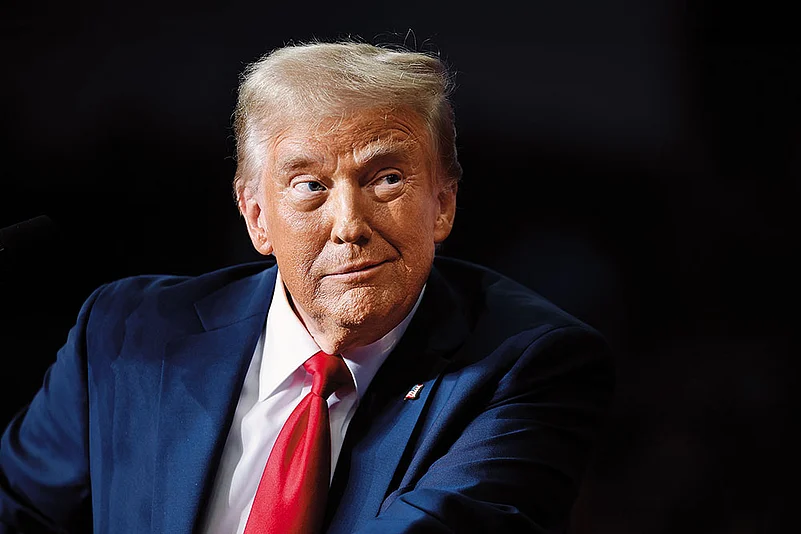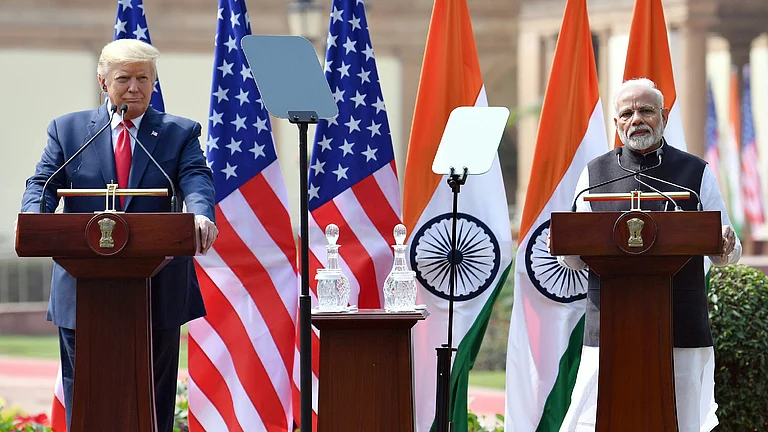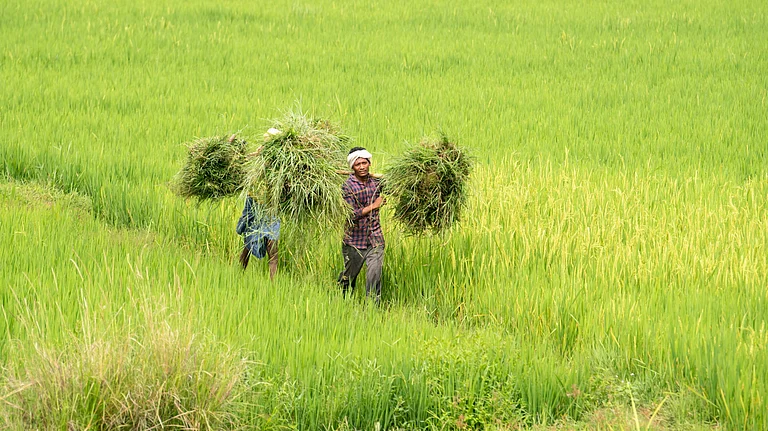US President Donald Trump has said that the proposed trade deal with India would be on the lines of what America has finalised with Indonesia on Tuesday.
Under the US-Indonesia trade pact, the Southeast Asian nation will provide complete access to its market to US products, while Indonesian goods would attract a 19% duty in America.
In addition, Indonesia has committed to purchasing USD 15 billion in US energy, USD 4.5 billion in American Agricultural Products, and 50 Boeing jets.
Later, while talking to reporters, Trump said: "India is basically working along that same line. We are going to have access into India. You have to understand, we had no access to any of these countries. Our people couldn't go in, and now we are getting access because of what we are doing with the tariffs…” The Indian team is in Washington for the fifth round of negotiations for the proposed bilateral trade agreement (BTA).
Commenting on Trump's remarks, economic think tank GTRI said if India were to accept such a "lopsided" arrangement, it could expose its domestic sectors, especially dairy and agriculture, to duty-free US goods while gaining little in return.
"A bad deal, especially one that removes India's tariffs without reciprocal benefits, could be worse than no deal at all," GTRI Founder Ajay Srivastava said, adding India must therefore negotiate transparently, guard against one-sided outcomes, and not succumb to pressure for quick, symbolic agreements that compromise long-term economic interests.
The visit of Indian commerce ministry team to Washington is important as both sides have to iron out issues in sectors, like agriculture and automobiles.
It is also important as the US has further postponed the imposition of additional tariffs on several countries, including India, until August 1.
India has hardened its position on the US demand for duty concessions on agri and dairy products. New Delhi has, so far, not given any duty concessions to any of its trading partners in a free trade agreement in the dairy sector.
India is seeking the removal of this additional tariff (26%). It is also seeking the easing of tariffs on steel and aluminium (50%) and the auto (25%) sectors. Against these, India has reserved its right under the WTO (World Trade Organization) norms to impose retaliatory duties.
US President Donald Trump announced heavy tariffs on a number of countries, including India, on April 2. However, the imposition was postponed for 90 days until July 9 and later to August 1.
The US wants duty concessions on certain industrial goods, automobiles, especially electric vehicles, wines, petrochemical products, and agri goods, like dairy items, apples, tree nuts, and genetically modified crops.
On the other hand, India is seeking duty concessions for labour-intensive sectors, such as textiles, gems and jewellery, leather goods, garments, plastics, chemicals, shrimp, oil seeds, grapes, and bananas in the proposed trade pact.
The two countries are looking to conclude talks for the first tranche of the proposed bilateral trade agreement (BTA) by fall (September-October) this year. Before that, they are looking for an interim trade pact.
India's merchandise exports to the US rose 21.78% to USD 17.25 billion in April-May this fiscal year, while imports rose 25.8% to USD 8.87 billion.































